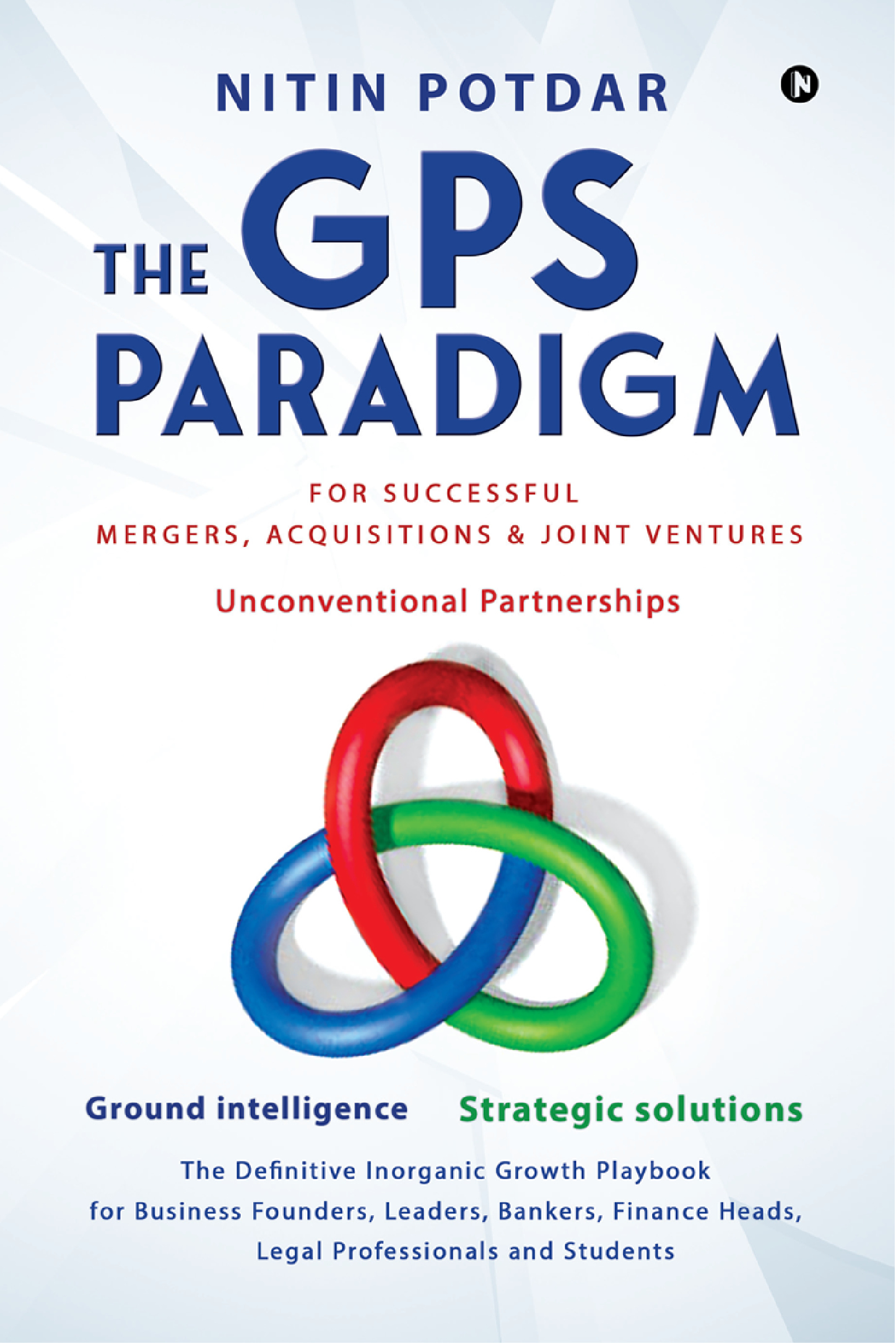This new corporate theory titled ‘GPS Paradigm’ can help existing and future business leaders and decision makers deal with the diktats of disruptive technology and perpetual unpredictability in the course of designing and implementing their M&A and JV plans.
This book prescribes a far-sighted scientific theory which the author has christened as the GPS Paradigm for M&As and JVs, an end-to-end systemic solution to enable every company to thrive (not merely survive), stay relevant, and ensure sustainable growth. He prescribes this theory based on his professional experience of several transactions over three decades, including innumerable deep dive conversations with CEOs, CFOs, legal advisors, and counsel among other stakeholders across different domains, industries, and countries.
The author says that GPS Paradigm is not a formula for blind adoption, nor is it a silver bullet for all ills. Business by its very nature is prone to transactional failures despite the best of intentions, but more importantly, even the transient failures will not in the least disprove the tenets and principles of the GPS Paradigm; instead, they would reinforce the unshakable doctrines, such is the fidelity and foolproofness of this paradigm.
Here is an extract from the book:
Don’t believe what your eyes are telling you. All they show is limitation.
Look with your understanding, find out what you already know, and you’ll see the way to fly.
Richard Bach, author of Jonathan Livingston Seagull
When I returned from my business trip to London in end February 2020, little did I know that the world was about to face a catastrophe of unprecedented size and scale, a calamity that was to change our lives and livelihoods forever, in ways we would not have imagined even in our wildest nightmares. Come March 2020, Covid-19 formally announced its arrival. It was clear by then that this toxic virus was a ruthless predator intent on playing havoc, although it was acknowledged as a pandemic much later.
This abrupt home confinement was a unique experience for countless professionals like me—a mandatory sabbatical of introspection and intrigue—that was thrust on us without prior intimation by forces beyond our control. During this period of lull, when I was searching for ‘everything’ in the name of ‘something’, I came across a gem in book from: ‘Jonathan Livingston Seagull’ written by pilot-turned-barnstormer-turned-celebrated author Richard Bach. I have lost count of how many times I read this four-part book ever since.
It was perhaps the outwardly simple but magnificently profound message that deeply resonated with me. Bach, who is spiritually fixated on flying and aviation as his chosen transcendental themes, tells a poignantly inspirational story of a stary-eyed seagull named Jonathan Livingston Seagull who dares to dream of those very things his folks have dismissed as being futile and unwarranted. While his mates chase the boats lured by the prospect of savoring scattered fish scraps and littered breadcrumbs, Jonathan takes to the skies to practice the dedication and discipline of flying. His love for the skies comes with a heavy penalty: he is expelled from his tribe and made an outcast, but that doesn’t deter him from soaring higher in the guiding light of two seasoned gulls. Jonathan returns to his people to share the art and science of flying and spread love against all odds, as instructed by his Guru. Braving the initial resentment and flippancy of the natives, he imparts his experiential wisdom to a few aspiring gulls, helps them see the virtues beneath the veil, and leaves for new shores after the new flocks have become adept at flying. Towards the end of the parable, Jonathan is predictably converted into a God by his community, and most gulls spend most time in blind worship and ostensible devotion. Soon after, few birds shun the confines of conformity and take to flying with the vigour it demands. But there’s a gull called Anthony who is consumed by the apparent futility of life and decides to end his life. However, he is motivated to think otherwise in the nick of time by an enigmatic, angelic gull who appears from nowhere, and when asked for his name, only says, “You can call me Jon!” This suggestive end is so powerful in its metaphorical imagery and unpretentious sermon that sincere readers can’t help but seek to discover the Jonathan Livingston Seagull in them and appreciate the relevance in respective lives.
Every time I read the book, I go back in time to recount the cherished milestones of my personal voyage of over 30 years—my school and college time, graduation span, law college days, internship interview, initial days of practice, golden time spent with my seniors, and career highs and lows as a corporate M&A lawyer
Today, when I look back, I find great satisfaction in having delivered the lecture series on M&A and Joint Ventures over a span of more than two decades on diverse platforms – whether ILS Law School, Pune, other law schools, or various fraternity meets.
However, I have experienced a deeper sense of fulfillment in the articulation of my home-grown experiences and insights, in the form of a new corporate theory titled ‘GPS Paradigm’, to help existing and future business leaders and decision makers deal with the diktats of disruptive technology and perpetual unpredictability in the course of designing and implementing their M&A and JV plans.
I sincerely hope my book helps founders, business Leaders, CEOs, professionals, and students (of Law in particular) to make a positive difference through their contribution in the living waters of business – either as practitioners or consultants. This book is for those mavericks who, more than merely driving the change, are aspiring to be the change.

